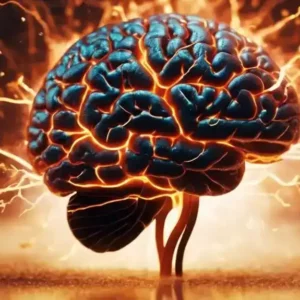Exceeding safe caffeine limits can pose real risks. Consuming too much coffee caffeine can lead to adverse health effects like insomnia, anxiety, upset stomach, and fast heart rate. Toxic levels can cause caffeine poisoning with symptoms such as rapid high-dose consumption danger. Individual sensitivities vary, impacting how your body responds to caffeine. It’s essential to regulate caffeine intake not only from coffee but all sources for your well-being. If you want to know more about managing coffee caffeine risks and strategies to support a healthy caffeine balance, there are detailed insights to explore.
Understanding the Dangers of Coffee Caffeine
Understanding the dangers of coffee caffeine is essential for maintaining a healthy balance in your diet.
Be aware of the caffeine content in various beverages and the safe limits recommended for different population groups.
Overview of Caffeine in Diets
Caffeine, a natural stimulant present in coffee, can have negative health consequences if consumed excessively in your diet. While caffeine can be part of a healthy diet for most individuals, exceeding safe limits may lead to adverse effects. Factors influencing caffeine sensitivity include body weight, age, and medications.
Tea contains about 30-50 mg of caffeine per cup, soft drinks have 30-40 mg per can, and energy drinks range from 40-250 mg per serving. Understanding the caffeine content in various beverages is important to avoid overconsumption.
Recommendations suggest that up to 400 mg of caffeine per day is safe for healthy adults. Monitoring your caffeine intake from all sources is essential for managing consumption and preventing potential health risks.
Importance of Understanding Caffeine Limits
It’s essential to be aware of the safe limits for consuming caffeine to prevent potential health issues associated with overconsumption. Understanding moderation and caffeine awareness are key in managing your caffeine intake effectively. By knowing the recommended guidelines, you can make informed choices to safeguard your well-being.
For healthy adults, staying within the limit of up to 400 mg of caffeine per day, equivalent to about 4-5 cups of coffee, is generally considered safe. However, specific populations such as children, adolescents, pregnant, and breastfeeding women have stricter restrictions due to potential risks.
Being mindful of your caffeine consumption, whether from coffee, tea, soft drinks, or energy drinks, empowers you to enjoy caffeine responsibly and maintain a healthy balance in your daily routine.
Caffeine Content in Coffee and Other Beverages

When it comes to caffeine content in beverages, knowing the levels in coffee and other drinks is essential for managing your intake. Understanding how much caffeine you consume can help you avoid potential health risks associated with overconsumption. Below is a comparison table showcasing the caffeine levels in coffee and other popular beverages for your reference.
| Beverages | Caffeine Content (per serving) |
|---|---|
| Standard Coffee | 80-100 mg |
| Decaf Coffee | 2-15 mg |
| Tea | 30-50 mg |
| Soft Drinks | 30-40 mg |
| Energy Drinks | 40-250 mg |
Caffeine Levels in Coffee
When it comes to understanding caffeine levels in coffee and other beverages, knowing the differences between standard coffee and decaf coffee is essential. Standard coffee typically contains 80-100 mg of caffeine per 8-ounce cup, while decaf coffee ranges from 2-15 mg per cup. To visualize this variance more clearly, take a look at the table below:
| Beverage Type | Caffeine Content per 8 oz Cup |
|---|---|
| Standard Coffee | 80-100 mg |
| Decaf Coffee | 2-15 mg |
Standard Coffee
Understanding the caffeine content in standard coffee is essential for gauging your daily intake and managing potential health risks associated with excessive consumption. Standard coffee, with 80-100 mg of caffeine per 8-ounce cup, is influenced by the impact of roasting on caffeine extraction. Being aware of these levels helps you make informed decisions about your caffeine consumption to maintain a healthy balance.
| Coffee Type | Caffeine Content (mg) |
|---|---|
| Standard Coffee | 80-100 |
Decaf Coffee
Understanding the caffeine content in decaf coffee is essential for managing your overall caffeine intake and making informed choices about your daily consumption. Decaffeinated coffee offers caffeine alternatives with significantly lower levels, ranging from 2 to 15 mg per 8-ounce cup. Enjoy the benefits of decaf, such as reduced caffeine intake, while still savoring the flavors and habits of your daily coffee routine.
| Decaf Coffee Content (per 8-ounce cup) | Caffeine Level (mg) |
|---|---|
| Average Range | 2-15 |
Comparison with Tea, Soft Drinks, and Energy Drinks
Comparing the caffeine content in coffee with that of tea, soft drinks, and energy drinks reveals varying levels across different beverages. Tea generally contains 30-50 mg per cup, soft drinks 30-40 mg per can, and energy drinks 40-250 mg per serving. Understanding these differences can help you make informed choices about your caffeine intake. Below is a table summarizing the caffeine content in these beverages:
| Beverage | Caffeine Content (mg) |
|---|---|
| Tea | 30-50 |
| Soft Drinks | 30-40 |
| Energy Drinks | 40-250 |
Being aware of the caffeine levels in your favorite drinks allows you to manage your overall consumption effectively. Enjoy your beverages while keeping your caffeine intake in check.
Safe Limits of Coffee Caffeine Consumption

When it comes to your caffeine intake, understanding safe limits is essential for your health. Consider these key points:
- Recommendations for Healthy Adults
- Guidelines for Children and Adolescents
- Restrictions for Pregnant and Breastfeeding Women
Recommendations for Healthy Adults
To maintain a healthy caffeine intake, healthy adults should aim to consume up to 400 mg of caffeine per day, which is equivalent to about 4-5 cups of coffee.
When it comes to caffeine consumption, it’s essential to consider your own tolerance levels and the potential health benefits associated with moderate coffee intake.
Here are some key recommendations for healthy adults:
- Monitor your caffeine sensitivity and adjust your intake accordingly.
- Enjoy the health benefits of coffee in moderation, such as increased alertness and improved cognitive function.
- Stay within the recommended daily limit of 400 mg to minimize the risk of negative side effects and maintain a healthy relationship with caffeine.
Guidelines for Children and Adolescents
Children and adolescents should adhere to strict guidelines for safe limits of coffee caffeine consumption to safeguard their health and well-being.
- Impact on Growth: Excessive caffeine intake during childhood and adolescence can interfere with proper growth and development, potentially leading to issues in adulthood.
- Cognitive Development: High levels of caffeine may disrupt cognitive functions in young individuals, affecting learning abilities and memory retention.
- Health Risks: Overconsumption of caffeine in this age group can increase the risk of anxiety, sleep disturbances, and other adverse health effects, impacting overall well-being.
It is essential for parents and caregivers to monitor and limit caffeine intake in children and adolescents to support their healthy growth and cognitive function.
Restrictions for Pregnant and Breastfeeding Women
Monitoring and limiting caffeine intake is essential for pregnant and breastfeeding women to guarantee the safety and well-being of both the fetus and the infant.
Here are some key points to keep in mind for pregnant and breastfeeding women:
- Risks for Pregnant Women: High caffeine intake during pregnancy has been associated with an increased risk of miscarriage and low birth weight.
- Infant Health: Caffeine can pass through breast milk to the baby, potentially causing irritability and poor sleep patterns.
- Safe Limits of Coffee Caffeine Consumption: It’s recommended that pregnant and breastfeeding women limit their caffeine intake to less than 200 mg per day to minimize any adverse effects on the fetus or infant.
Considerations for At-Risk Populations
Taking into account the safe limits of coffee caffeine consumption for individuals with heart conditions, anxiety disorders, or sensitivity to caffeine is essential in preventing adverse effects on health. When considering at-risk populations, it’s important to understand the following:
- Risk Factors: Individuals with heart conditions may experience increased heart rate and blood pressure from caffeine.
- Vulnerable Populations: Those with anxiety disorders may be more prone to heightened feelings of nervousness and restlessness when consuming caffeine.
- Safe Consumption Guidelines: Limiting caffeine intake to less than 200 mg per day is recommended for individuals sensitive to caffeine, to avoid potential health risks.
Being mindful of these considerations can aid in safeguarding the well-being of those who may be more susceptible to the effects of caffeine.
Symptoms of Coffee Caffeine Overconsumption

Excessive consumption of coffee caffeine can lead to various symptoms that may impact your health. Be aware of the following short-term and long-term effects:
- Insomnia and Sleep Disturbances
- Jitters and Anxiety
- Upset Stomach and Nausea
Short-term Health Risks
Excessive caffeine consumption can lead to a range of short-term health issues that can impact your well-being. Symptoms of coffee caffeine overconsumption include insomnia and sleep disturbances.
Jitters and anxiety, as well as upset stomach and nausea, are also common effects of consuming too much caffeine.
Additionally, Headaches and a fast heart rate are common indicators of having consumed too much caffeine.
Insomnia and Sleep Disturbances
To manage Insomnia and sleep disturbances caused by overconsumption of coffee caffeine, it’s essential to be mindful of your daily intake and its potential effects on your sleep quality.
- Practice good sleep hygiene
- Monitor your caffeine tolerance
- Consider reducing caffeine intake gradually
Jitters and Anxiety
Causing feelings of nervousness and anxiety, overconsumption of coffee caffeine can lead to short-term health risks such as jitters and heightened feelings of unease.
- Caffeine sensitivity: Individual reactions vary.
- Anxiety management: Techniques like deep breathing can help.
- Moderate intake: Limiting caffeine can reduce these symptoms.
Upset Stomach and Nausea
Overconsumption of coffee caffeine can lead to symptoms like upset stomach and nausea, which are common short-term health risks associated with excessive intake.
- Drink water to help soothe the stomach.
- Avoid consuming more caffeine until symptoms subside.
- Consider herbal teas like ginger or peppermint for nausea relief.
Headaches and Fast Heart Rate
Experiencing headaches and a fast heart rate can be indicators of consuming too much caffeine, potentially signaling the need to reassess your intake levels.
- Caffeine withdrawal management is vital to avoid symptoms.
- Factors affecting caffeine tolerance include genetics and overall health.
- Monitoring your caffeine intake can help prevent headaches and rapid heart rate associated with overconsumption.
Long-term Health Risks
Excessive consumption of coffee caffeine can have serious long-term health implications that you should be aware of. Chronic high caffeine intake has been linked to two significant health risks, including:
- High Blood Pressure
- Gastrointestinal Issues
High Blood Pressure
High blood pressure, a condition associated with prolonged high caffeine intake, can pose significant risks to your cardiovascular health over time.
- Cardiovascular risks linked to sustained high blood pressure
- Lifestyle modifications essential for hypertension management
- Dietary changes important in controlling blood pressure levels
Gastrointestinal Issues
Prolonged high caffeine intake can exacerbate gastrointestinal issues, including irritating the stomach lining and contributing to chronic digestive problems.
- Chronic discomfort can arise from increased stomach acidity.
- Digestive health may be compromised, leading to conditions like GERD.
- Long-term consumption can disrupt gut flora balance, impacting overall digestion.
Toxic Levels of Coffee Caffeine and Caffeine Poisoning
When it comes to toxic levels of coffee caffeine and caffeine poisoning, understanding the risks is paramount.
Rapid consumption of high doses and exposure to pure or highly concentrated caffeine products can have severe consequences on your health.
Be cautious and aware of these dangers to safeguard your well-being.
Rapid Consumption of High Doses
Consuming extremely high doses of caffeine rapidly can result in severe health risks, including seizures and other dangerous effects.
When reaching toxic levels of coffee caffeine through rapid consumption, you may experience:
- Caffeine toxicity: Exceeding safe limits can lead to caffeine toxicity, causing symptoms like irregular heartbeat and confusion.
- Caffeine overdose: Consuming excessive amounts quickly may result in caffeine overdose, manifesting as vomiting, hallucinations, and even cardiac arrest.
- Severe reactions: Rapid intake of high doses can trigger severe reactions, such as tremors, dizziness, and in extreme cases, life-threatening complications.
Dangers of Pure and Highly Concentrated Caffeine Products
Exceeding safe limits of caffeine intake by consuming pure or highly concentrated caffeine products can result in severe health risks and potentially life-threatening complications. When dealing with such products, you face the following risks of overdosing and caffeine toxicity:
- Extreme Toxicity: Pure caffeine products contain highly concentrated doses, making it easy to surpass safe limits unknowingly.
- Quick Onset: Due to the potency of concentrated caffeine, symptoms of overdose and toxicity can manifest rapidly, leading to immediate health concerns.
- Lethal Potential: Even small amounts of pure or highly concentrated caffeine can be lethal, highlighting the critical importance of understanding dosages and avoiding excessive consumption.
Individual Sensitivity to Coffee Caffeine
Your body weight, age, genetics, and overall health play vital roles in determining how sensitive you’re to caffeine.
Additionally, certain medications and supplements can interact with caffeine, potentially amplifying its effects and your sensitivity.
Understanding these factors is essential for managing your caffeine intake and avoiding adverse health outcomes.
Factors Influencing Caffeine Sensitivity
Factors influencing caffeine sensitivity play a significant role in how individuals respond to coffee caffeine intake. These factors include body weight, age, genetics, and overall health. Genetic influences can determine how efficiently your body metabolizes caffeine, impacting its effects. Age factors also come into play, as younger individuals tend to be more sensitive to caffeine than older adults due to differences in metabolism. Additionally, body weight affects caffeine sensitivity, with lower body weight individuals often experiencing stronger effects from the same amount of caffeine. Overall health, including factors like liver function and existing medical conditions, can further influence how your body processes and reacts to caffeine.
Being aware of these factors can help you better manage your caffeine intake for optimal well-being.
Interaction with Medications and Supplements
Considering individual sensitivity to coffee caffeine, understanding how it interacts with medications and supplements is essential for managing potential health risks.
Interactions with supplements or medications can either amplify or diminish the effects of caffeine, leading to adverse outcomes. Certain drugs like antibiotics, antidepressants, and asthma medications can be affected by caffeine, potentially altering their effectiveness or causing side effects.
It’s important to consult healthcare providers to determine medication compatibility with caffeine, especially if you have conditions like heart disease or anxiety disorders.
Monitoring your caffeine intake from all sources, including medications and supplements, is essential to prevent interactions that could compromise your health. Stay informed about how caffeine may interact with your medications for a safer consumption experience.
Strategies to Mitigate the Dangers of Coffee Caffeine
To mitigate the dangers of coffee caffeine, consider implementing the following strategies:
- Gradually reduce your caffeine intake to avoid withdrawal symptoms and manage consumption effectively.
- Keep track of your caffeine intake from various sources to make sure you stay within safe limits.
- Switch to decaf coffee or other low-caffeine alternatives to enjoy similar flavors while reducing overall caffeine intake.
Gradual Reduction of Caffeine Intake
Gradually reducing your caffeine intake can effectively mitigate the potential health risks associated with excessive coffee caffeine consumption. To make this process smoother and more manageable, consider the following strategies:
- Monitor your caffeine intake: Keep track of how much caffeine you consume daily to understand your current levels.
- Slowly decrease consumption: Reduce your caffeine intake gradually to minimize the risk of caffeine withdrawal symptoms.
- Replace with alternatives: Consider switching to decaf coffee or other low-caffeine beverages to help lower your overall caffeine consumption while still enjoying your favorite drinks.
Effective Tracking of Caffeine Consumption
Monitoring your daily caffeine intake is essential for effectively managing your overall consumption and mitigating potential health risks associated with coffee caffeine.
To track your caffeine intake effectively, consider the following strategies:
- Keep a Caffeine Journal: Record the amount of caffeine consumed daily from all sources, including coffee, tea, soft drinks, and medications.
- Set Consumption Limits: Establish a maximum daily caffeine intake based on recommended guidelines to avoid overconsumption.
- Monitor Consumption Habits: Pay attention to patterns in your caffeine consumption, such as peak times or triggers, to make informed adjustments.
Switching to Decaf Coffee and Other Alternatives
Consider switching to decaf coffee and other low-caffeine alternatives as a practical way to reduce your overall caffeine intake while maintaining your coffee habits. Decaf coffee offers the rich flavor of regular coffee with noticeably lower caffeine content, making it a suitable choice for those looking to cut back on caffeine consumption.
Other caffeine alternatives to explore include herbal teas, such as chamomile or peppermint, which provide a soothing experience without the stimulating effects of caffeine. Additionally, incorporating hot cocoa or golden milk can offer comforting beverage options with minimal caffeine.
Experimenting with these alternatives can help you find a satisfying replacement for your usual caffeinated beverages while still enjoying a warm and flavorful drink.
Conclusion
So, now you know the dangers of coffee caffeine and the importance of monitoring your intake.
Remember, the sweet aroma and kick of caffeine can quickly turn bitter if consumed in excess. Stay mindful of your coffee consumption levels to avoid falling into the caffeine trap.
After all, too much of a good thing can have some not-so-good consequences.
Stay informed, stay safe, and enjoy your coffee responsibly.





















